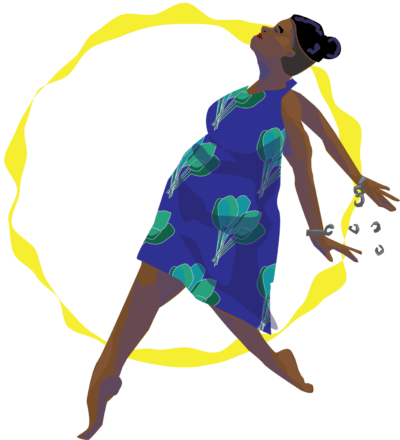
What Is Harm Reduction?
Harm reduction refers to a set of human rights and public health-based practices and principles aimed at reducing negative outcomes associated with certain activities, some of which are criminalized—such as sex work¹ and injection drug use.
Sex work is an umbrella term which includes any type of labor where a sexual service is provided in return for a benefit. Thus, sex work can include prostitution (direct sexual services), as well as other activities like dancing, webcam work, making adult films, and phone sex. Sex work refers to a consensual transaction between adults and should not be mistaken for sex trafficking, which may involve violence, threats, deception, or other forms of coercion and exploitation.
Harm reduction efforts prioritize the safety, rights and dignity of individuals engaging in the activity, rather than focusing on ending or preventing the activity. This approach respects people’s autonomy to make their own choices, and literally focuses on reducing harm that can result from those choices. Thus, for activities that are criminalized, harm reduction practices may include reducing likelihood of contact with the criminal justice system and the harm that results from criminal justice system itself. This harm reduction philosophy is colloquially described as “meeting people where they are.”
What Does Harm Reduction Look Like in Practice?
Harm reduction strategies can vary depending on the needs of the community being served. Here are some ways they are commonly put into practice:
Decriminalization vs Legalization
These terms are often used together but they are not interchangeable, and their differences should be noted. Decriminalization and legalization produce different policy outcomes.
- Decriminalization means removing all criminal laws relating to a certain activity.
- Legalization means using criminal laws to control activities by determining the conditions under which they can happen legally.
Why Decriminalize?
The criminalization of sex work and drug possession or use disproportionately impacts women, people of color, immigrants, and LGBT individuals (particularly people of transgender experience). These are communities that are already over-policed and surveilled, heavily criminalized, and vulnerable to acquiring HIV, which makes them targets of HIV criminalization laws as well.
Laws and policies that target communities disproportionately impacted by the HIV epidemic include:
Consequences of Criminalization
- Criminal prosecution creates barriers to accessing healthcare and public benefits. It can also limit the exercise of other legal rights and liberties, like voting.
- Fear of prosecution can make it dangerous for sex workers and people who use drugs to report violence and other crimes and to talk openly with healthcare providers.
- Past convictions can make accessing public benefits and jobs challenging or impossible.
- Laws like the Stop Enabling Sex Traffickers Act and the Fighting Online Sex Trafficking Act, which target platforms sex workers use to safely advertise services and screen their clients online, force sex workers to work “underground”. This means sex workers risk violence at the hand of clients and often police as well as exploitation by pimps/traffickers while working on the streets. They may also be forced to work less or be unable to continue working at all, creating economic insecurity.
- Accidental overdose deaths are the leading cause of accidental death in the U.S. Many of these deaths are preventable if emergency medical assistance is requested. However, the fear of criminalization can discourage people from seeking help for an overdose (whether their own or one they are witnessing). Fear of police interactions is the most commonly cited reason people do not call 9-1-1 for medical help.
What Can Be Done?
At the Federal Level:
At the State Level:
Where Can I Learn More?
- Desiree Alliance: national coalition of current and former sex workers
- Drug Policy Alliance: advocacy network working to end drug war and criminalization of drug use/possession
- Harm Reduction Coalition: national capacity building organization that advocates for the rights of people who use drugs and communities disproportionately impacted by the war on drugs.
- Sex Workers Outreach Project: national network dedicated to the fundamental human rights of people involved in the sex trade and their communities, focusing on ending violence and stigma through education and advocacy
- Survivors Against SESTA: sex worker led effort to elevate sex worker voices in the outcry against SESTA/FOSTA
- Women with A Vision: social justice non-profit that addresses issues faced by women in the south including sex worker rights, drug policy reform, reproductive justice, and advocacy for women living with HIV.


